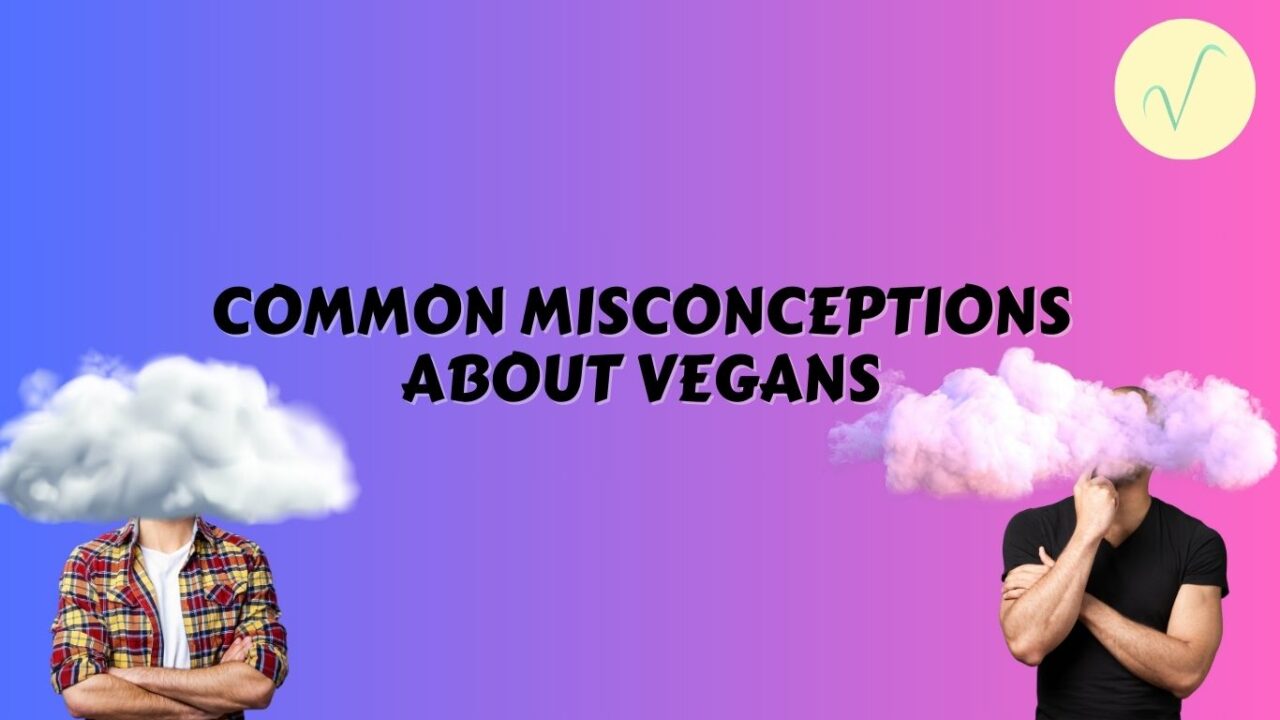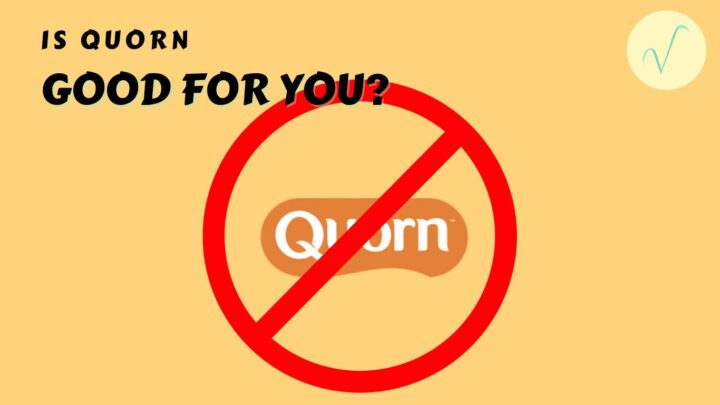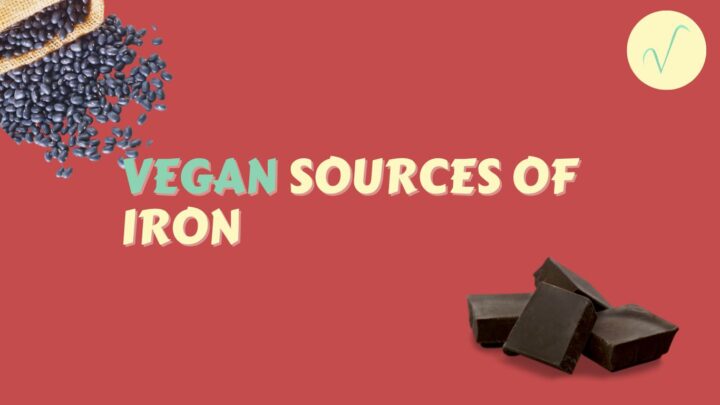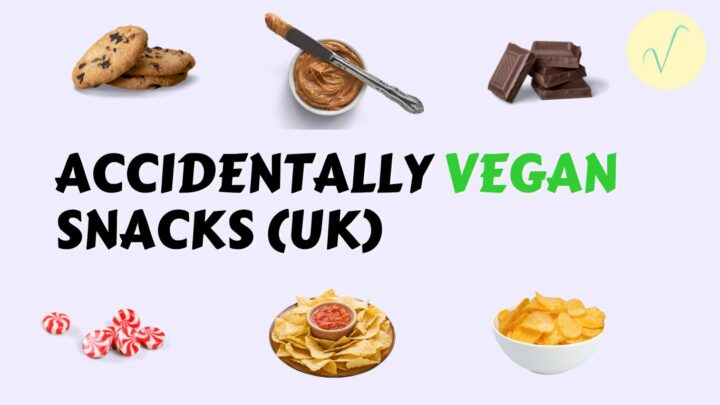Veganism as a diet, lifestyle and or moral choice, is one of the things most misunderstood in today’s society. I’m sure many fellow vegans would agree when it comes down to it, we’re quite a misunderstood bunch.
Ranging from myths on poor nutrition, to ideas that our meals are completely lack luster and consist of only salads and fries. Here are some of the most common misconceptions about the vegan lifestyle.
Vegan food is boring/Vegan food is very restricting
This is one of the most common misconceptions, and one I thought was well-worth covering first in the list. Just because you as an individual don’t yet know how to season vegetables, doesn’t mean that they’re lacking when it comes to flavour.
This is quite a bizarre thing to even think, considering people use plant-based seasonings to enhance the flavour of the meat they prepare. The same people forget their favourite pastries, pastas, sweets, fast food, use vegan ingredients to liven up your meals.

I don’t know about you, but when I ate meat and under seasoned my chicken (rarely), it wasn’t all the special anymore. The other day I was at my cousin’s and made some lentils with some spices but she didn’t have veg stock, just chicken stock, which had chicken in it.
I looked in the cupboard for something then saw a “chicken seasoning”, which was in fact suitable for vegans; Something people usually don’t do is check the ingredients, you’d be surprised that most of the time the flavour people rely on is usually plant-based.
How many edible plant species are there in the world?
Who knows the exact number, but we know there is over 200,000 plants which you can eat. That includes fruits, vegetables, nuts, etc. If people say they’ve never eaten vegan food, they may be unaware that a lot of their everyday snacks are already vegan.

Not to mention fruits and nuts, which are generally eaten on their own. When going vegan you have to adapt to what types of ingredients you can use, and let’s face it, it can sometimes be hard making vegetables taste as good, but it’s all about adjusting the range of ingredients you use, as well as the balance of flavours to suit your palette.
Vegan food is expensive
When planned correctly, a plant-based diet, primarily based off fresh fruits, vegetables, grains, greens and legumes is more or less cheap. Especially if you stock up on frozen veggies, dried beans and rice, etc.
However, it is understandable as to why one would think that, especially when visiting the Tesco free from section to see a galaxy chocolate bar for £3, with the dairy version at a solid £1.
This can also be said for vegan alternatives to ham, cheese, and if you go Greggs, for the veganised steak bakes and sausage rolls; Pizza places for vegan cheeses, etc.
But that’s just fast food, pre-packaged and processed food, and if you eat fast, or “convenience foods” often, you’re going to be spending a lot of money regardless.

I’d go so far as to say a vegan diet is even cheaper than the omnivorous alternative so commonly accepted by society, especially when considering the price per serving of black beans as compared to beef.
I noticed from my sister who does buy meat, showing me her receipt and how cheap the veggies she bought are; Canned chickpeas, salad veggies, root vegetables, etc, each between 30p-£1 and the meat she bought being £3 or over on its own. Fruits and nuts were on average around £1.10 to £3.
The vegan ingredients were all in all cheaper, which is against the common misconception that fruits and vegetables are expensive.
That being said, if you consistently buy processed (in other words packaged) fruit and veg, then you might be spending more than you need to.
Vegans never shut up
I personally don’t like the stereotypes that vegans are annoying people, since I have recently become one, and don’t fit that stereotype.
There are definitely different types of vegans in the world, that’s a whole other discussion, but we of course see where that stereotype is coming from.
Vegans think they’re better than other people
Unfortunately in the world there are people with superiority complexes, from all different backgrounds. I’ve seen people who advocate the carnivore diet for alleviating autoimmune disorders and they talk as if the concept of a vegan diet is bogus.
I’ve seen individuals talk to their families who still eat meat as if they’re disgusting; When they were eating meat the week before; Some people are very egotistic and want to see veganism as a thing to brag about or a trend to jump on, but in reality, we’re all people trying to do better for the world.
Vegans always try to force their beliefs on people
A lot of vegans sport messages on their backpacks or go so far as to tattoo “vegan” on their skin, or constantly rant about saving the world and ending animal cruelty.
As well as certain vegan influencers like Joey Carbstrong spreading the word nationwide and sparking the discussion to mixed review.
But that, once again, is a common misconception. Veganism is spreading like wildfire, and we don’t all rant about it every day.
For me personally, if I’m eating a lunch at work, and a colleague asks me:
“What’s that?”
I’d just respond with the list of ingredients, they’d ask me:
“Are you vegan or something?”
I’d reply:
“Yeah”.
Or something along those lines. Then it would digress to more questions about me and why, and how I do it for health, then I’d change the subject as I don’t really want to talk much about what I eat and why, do your research…
I don’t brag about it, I live it, and if the conversation swings that way then I can bring in the knowledge; A very common misconception is that a vegan is always out there about it, sometimes it’s just a matter of eating different.
Vegans are vitamin/mineral deficient
One of the most common misconceptions is that a vegan diet is a one stop shop to poor health and nutrition. If you attempt it you’re a crazy person and need to take all these supplements if you’re going to survive, etc.
In a study run in 2015 (//www.ncbi.nlm.nih.gov/pubmed/26502280), experts concluded that well-balanced and supplemented omnivorous, vegetarian, or vegan diets (including fortified foods) can be adequate for the uptake of minerals and vitamins.
The same goes each way for both meat eaters and vegans alike; if you eat a poor diet, you risk malnourishment and deficiency in certain minerals.
A vegan diet needs to be well-planned, especially for someone just getting into it, as there are an array of nutrients that you need to plan food sources for, and which require supplementation.
With that said you can still breathe knowing a vegan diet is not rocket science, it’s more about knowing the science behind the rocket and other foods that can meet your nutritional needs.
Oh you’re vegan, you must be healthy then
Sometimes you get two types of people; the wannabe nutritionists that ask where you get your protein from, or the ones that assume you’re healthy just because you’re vegan.
It goes back to the point about not being better than anyone, just being the best version of yourself.
Not every vegan is healthy (trust me I know). I’ll give an example:
At one end of the spectrum you have person A, who’s a vegan who scouts for the latest vegan junk food bars, eats vegan sausage rolls for breakfast, vegan burgers for lunch and a beer or two, then a vegan stir fry for dinner, with some vegan ice cream for dessert.
Then there’s person B, who starts the day with the morning oats and chia seeds, eat a balanced lunch, few healthy snacks throughout the day, and a good satiating dinner, drinking their water in between.
If you’re healthy, you’re healthy. Not all vegans are malnourished, not all vegans know how to eat properly. That’s why you should always look at all angles, the sad fact is the majority of people, both vegan or omni, suffer from nutrient deficiencies across the board, it’s all about the balance.
Do vegans get enough protein?
It’s a common misconception that vegans don’t get enough protein. In fact with the vast range of beans, nuts, seeds, grains and legumes available it’s more than possible to meet your daily requirements.
A peanut butter and banana sandwich (an accidental vegan snack), is 13g of protein. 1 cup each of cooked black lentils and quinoa is 13g protein, and 8.14g of protein, respectively.
If you’re training naturally you’ll adjust the diet to contain more high protein vegan foods, but that’s a normal part of fitness, adaptation.
Vegan diets are bad for the environment
The common argument, for the sake of being fair and covering both sides, is that vegetables, per calorie, according to the BBC (//www.bbc.co.uk/food/articles/vegan_vs_flexitarian) a vegan diet would increase gases by as much as “52%”. When also arguing “for” the vegan diet saying every product requires less emissions to produce than locally grown livestock.
In reality, locally grown livestock is a thing of the past, meat has become a cheap commodity, and people in all realness don’t care where their food comes from. They see “organic” but don’t understand the conditions of where that meat comes from, or what organic even means for meat products.
You can’t compare the gargantuan levels of damage to the world the meat industry has brought (//en.wikipedia.org/wiki/Environmental_impact_of_meat_production), in which it has led to extinction of numerous species, just to clear space for livestock.
Not to mention the fact that food is harvested yearly solely for livestock feed. You may argue about emissions from planes flying foods but transportation is a means by which those emissions are yet to be solved.
And considering how many fruits, veg, grains, nuts and seeds you can fit on a plane, that’s not a valid argument to use. A single cow releases 70-120kg of methane per year, you can fit millions of fruits and veggies on a plane.
The world is slowly evolving in regards to technology, diet, and lifestyles, and we need to keep up.
Common Misconceptions of veganism
A big stereotype is that us vegans neglect flavour, live an expensive lifestyle, feel privileged or are overly vocal about our lifestyles.
Some of us are just living our lives the way we feel’s best, and a good majority of us are humble people, just living normal and want to eat a kebab with no meat in it – Perspective.
Just some common misconceptions and my take on the matter, I tried to be as unbiased as possible.
We’re not perfect, I used to eat meat everyday, and cheese and everything else other than vegan food, but I made a change for myself, and sometimes vegans are literally just people that don’t eat that stuff anymore.




